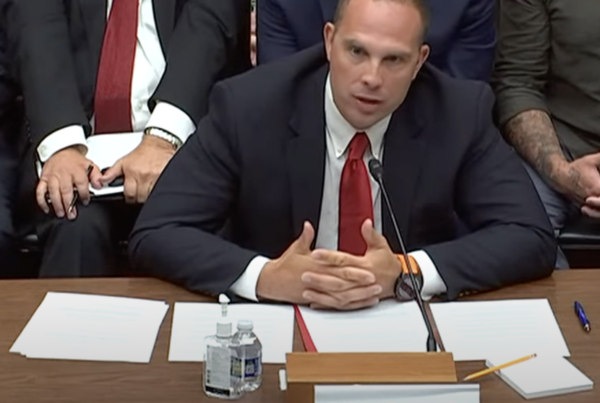This week, a group of national booksellers and two Texas based bookstores filed a lawsuit against the state of Texas over a bill set to go into effect in September.
This bill, House Bill 900, which Gov. Greg Abbott signed back in June, prevents the purchase, acquisition and possession of “educationally unsuitable materials” in Texas public school libraries.
The focus of the bill has been around shielding kids in schools from sexually explicit material. As for defining what counts as sexually explicit, that will be up to booksellers themselves.
Those ratings would also be subject to state review and oversight from the Texas Education Agency.
David Horowitz is executive director of Media Coalition, a trade association whose members include plaintiffs in this lawsuit. He joined Texas Standard to talk about why booksellers are suing. Listen to the interview above or read the transcript below.
This transcript has been edited lightly for clarity:
Texas Standard: Tell us about the names of some of these members in your association. I think they’re pretty well-known now.
David Horowitz: Well, there’s the two bookstores in Texas who are who are plaintiffs, and then the American Booksellers Association – the association who represent independent booksellers across the nation, including many members in Texas, including the two plaintiffs.
There’s also the Association of American Publishers, which represents most book publishers in the United States, and the Authors Guild, who represent thousands of authors throughout the country, including a number in Texas as well.
What is it that these booksellers and associations are saying? Why are they taking the state of Texas to court over this bill?
Well, for three main reasons.
The first is because the law is so vague, it’s really impossible to comply with. Lots of terms are left inadequately defined. You know, it’s a tremendously onerous burden on booksellers in the requirements. They review virtually any book they sell, really almost word for word.
And then finally, they strongly believe that it violates the constitutional rights of booksellers, publishers and authors. Yes, the First Amendment, but there are certain broader questions as well. There’s also a lack of due process protections. And we believe the law is unconstitutionally vague.
Obviously, this will come with some cost, clearly. And so this must be affecting the bottom line of a lot of these booksellers. How would the Texas law affect day-to-day business operations, assuming it goes into effect in September for a lot of these booksellers and publishers?
I think in many ways, the burden of complying is a very, very high one.
So booksellers have to review every book they would sell to a school or every book they have sold to a school in the past. So they have to review the books to determine first if there’s any description or depiction of sexual conduct.
Sexual conduct means a lot of what you think it means, but it also includes sexual contact, which is undefined. And as far as you know, it might mean something as mild as kissing, for example.
You know, you have to review really every word in every book. You couldn’t even do a word search because some words are used both to describe sexual activity, but also another way to describe anger or excitement or what have you.
And then finally, to determine whether the book is just restricted in the library or has to be banned, you have to decide if it’s patently offensive. And that means so offensive on its face as to affront current community standards of decency.
So, you know, it’s really a very labor-intensive process. Again, booksellers sell thousands of books and every one of these books would have to be reviewed with a fine-toothed comb. And they really don’t have the manpower. You know, it’s not a high-margin business. Most booksellers are small business people who are just trying to make a living. And they’re now having this huge burden placed on them to review every book they sell and report to the state on their assessment.
What specifically are the plaintiffs asking for in this case?
The plaintiffs would like to see the law be blocked. They’re asking the court to enjoin the law based on both the difficulty in complying and the constitutional violations. So we’ll see what happens.














